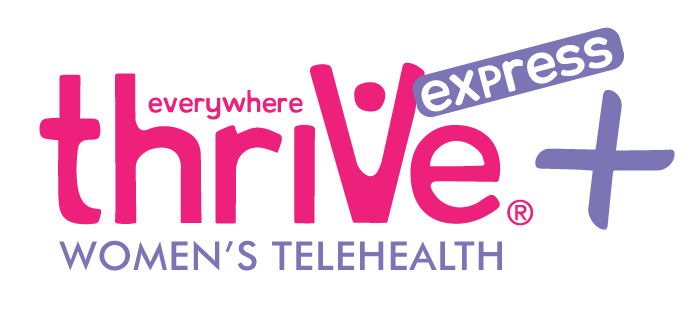This blog was updated May 2025
Wondering when you should get tested for STDs (sexually transmitted disease, also called a sexually transmitted infection)? Maybe you’ve had only one partner, or you haven’t been sexually active for very long. It’s totally normal to be curious about it. Here at ThriVe, we care that you’re healthy and confident. That’s why we believe it’s crucial for everyone to know the benefits of getting tested.
If you’ve ever been sexually active, this knowledge can help you make informed decisions about your health and relationships.
1. Early Detection of STDs:
One of the biggest benefits of STD/HIV testing is that you can find out if you have one early. Some people don’t show any symptoms, especially early on, which means you could have an infection without even knowing it. And even without symptoms those infections can spread to partners. Regular testing means that healthcare professionals can identify and treat these infections early, meaning less complications for you.1
2. Peace of Mind:
Knowing your STD status can provide you with peace of mind. It can be nerve-wracking not knowing if you have a HIV or a STD. Get tested for STDs to know your results. It can ease anxiety and help you make informed decisions.
3. Protecting Your Long-Term Health:
Some STDs, if left untreated, can have serious consequences for your long-term health. For instance, untreated infections can lead to Pelvic Inflammatory Disease (PID), which can cause severe pain, future pregnancy complications, and even infertility.2 Certain types of cancer, such as cervical cancer, can also be linked to untreated STDs.1 In the worst cases, diseases like HIV/AIDS can be life-threatening.1 Testing and early treatment is important.
4. Making Safer Decisions if You Are Pregnant:
If you or someone you know is sexually active and considering pregnancy, STD testing is crucial. If you choose to continue with the pregnancy, an untreated STD like HIV can be transferred to the fetus, potentially causing severe health problems. Getting tested is essential for the health of both the mother and the fetus. Get a no-cost pre-abortion screening at ThriVe Metro East if you’re looking for guidance.
If you’re considering abortion, an untreated STD, like syphillis, can lead to infections and long-term health effects.2 Whatever you decide about the pregnancy, it’s still important to get tested for STDs.

5. Preventing Passing an STD to a Partner Without Knowing:
STIs can be transmitted to sexual partners even if you don’t have any symptoms. It’s important to be tested so you can prevent unknowingly passing an infection to someone else. It’s not just about your own health; it’s about being responsible and considerate to others too.
6. Fostering Open Communication with Your Partner:
Getting an STI test together with your partner can be a responsible and even meaningful step in a relationship. It shows that you care about each other’s health and well-being. It can also lead to open and honest conversations about sexual health, which is important for a healthy and fulfilling relationship.
7. Community Health:
Your name and identity are kept confidential when you get tested for STDs. Data collected during testing helps public health officials track the spread of infection in the community. This information can help identify areas with high infection rates. That means more resources will be able to get to your area. When you’re tested for STIs, you’re contributing to the overall health of your community.
STD testing isn’t just about knowing your own status. It’s about protecting your health, your partner’s health, and the health of your community. It can provide peace of mind and keep you healthy. You can get testing and treatment for STIs – like chlamydia, herpes, or gonorrhea – early to prevent serious long-term health complications.1 Please consider testing if you’ve ever been sexually active — even if it was in the past. It’s a small step that can have a big impact on your life and the lives of those you care about.

How to Get STI Testing
To get tested for STDs is not complicated, and there are different ways you can do it:
- Go to a Doctor or Medical Clinic: The most common way is to visit a doctor or a place like a clinic. You make an appointment, talk to them about your worries, and they will tell you which tests you need based on your history.
- ThriVe and Other Clinics: Places like ThriVe Metro East and local clinics also offer STD testing. They are known for being private, affordable, and kind. Just find one near you and make an appointment. You can get an STI test at no-cost, and no judgment. Call us today if you’d like to get some peace of mind..
- Free Testing Events: Sometimes there are events where you can be tested for sexually transmitted infections for free or a small fee. They often happen during STI Awareness Month in April. You can find out about these events from your local health department or community groups. You can always get a test at ThriVe Metro East for no cost, whenever you need it.
- School or College Health Centers: If you’re a student, your school or college might have a health center that offers STD testing. Check with them to see if they provide this service.
- Public Health Departments: Local health departments usually have STD testing and counseling. These services are often free or low-cost. You can look up your local health department online or call them to find out where and when you can get a test. STD testing is always no-cost at ThriVe.
When you’re getting an STI test, it’s important to be honest with the healthcare provider about your sexual history and any symptoms you might be having. That way, they can tell you which tests you need and what to do next if you have an STD. The test could be a urine strip or involve a blood draw, or anal swab. It’s usually quick and easy.
Your privacy is important. The law requires healthcare providers to keep your test results private. You can talk to the healthcare provider or testing place about it before you get tested for STDs if you’re concerned.
Getting tested is smart. You can visit a doctor or clinic, find free testing events, check with your school’s health center, or talk to your local health department. No matter which way you choose, STI testing helps you know about your health and do something about it. Don’t be afraid to ask questions or seek help – your health matters, ThriVe is here to help. If you’re worried about having an STD, come visit us today to get a no-cost STI test.
Sources:
1https://www.mayoclinic.org/diseases-conditions/sexually-transmitted-diseases-stds/in-depth/std-symptoms/art-20047081
2https://www.mayoclinic.org/diseases-conditions/pelvic-inflammatory-disease/symptoms-causes/syc-20352594
3https://www.cdc.gov/sti/about/about-stis-and-pregnancy.html




